Cover
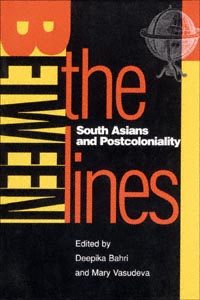
| title | : | Between the Lines : South Asians and Postcoloniality Asian American History and Culture Series |
| author | : | Bahri, Deepika |
| publisher | : | Temple University Press |
| isbn10 | asin | : | 1566394686 |
| print isbn13 | : | 9781566394680 |
| ebook isbn13 | : | 9780585382487 |
| language | : | English |
| subject | South Asian Americans, South Asian Americans--Ethnic identity, South Asians--Canada, South Asians--Canada--Ethnic identity, Oriental literature (English)--History and criticism, Decolonization in literature, Culture conflict in literature, Ethnicity in li |
| publication date | : | 1996 |
| lcc | : | E184.S69B48 1996eb |
| ddc | : | 973/.04914 |
| subject | : | South Asian Americans, South Asian Americans--Ethnic identity, South Asians--Canada, South Asians--Canada--Ethnic identity, Oriental literature (English)--History and criticism, Decolonization in literature, Culture conflict in literature, Ethnicity in li |
Page i
BETWEEN THE LINES
SOUTH ASIANS AND POSTCOLONIALITY
Page ii
In the series
Asian American History and Culture,
edited by Sucheng Chan,
David Palumbo-Liu, and
Michael Omi
Also in the Asian American History and Culture series:
Sucheng Chan, ed., Entry Denied: Exclusion and the Chinese Community in America, 18821943,
1991
Gary Y. Okihiro, Cane Fires: The Anti-Japanese Movement in Hawaii, 18651945, 1991
Yen Le Espiritu, Asian American Panethnicity: Bridging Institutions and Identities, 1992
Karen Isaksen Leonard, Making Ethnic Choices: California's Punjabi Mexican Americans, 1992
Shirley Geok-lin Lim and Amy Ling, eds., Reading the Literatures of Asian America, 1992
Renqiu Yu, To Save China, To Save Ourselves: The Chinese Hand Laundry Alliance of New York, 1992
Velina Hasu Houston, ed., The Politics of Life: Four Plays by Asian American Women, 1993
William Wei, The Asian American Movement, 1993
Sucheng Chan, ed., Hmong Means Free: Life in Laos and America, 1994
Timothy P. Fong, The First Suburban Chinatown: The Remaking of Monterey Park, California, 1994
Chris Friday, Organizing Asian American Labor: The Pacific Coast Canned-Salmon Industry, 1870
1942, 1994
Paul Ong, Edna Bonacich, and Lucie Cheng, eds., The New Asian Immigration in Los Angeles and Global Restructuring, 1994
Carlos Bulosan, The Cry and the Dedication, edited and with an introduction by E. San Juan,
Jr., 1995
Yen Le Espiritu, Filipino American Lives, 1995
Vicente L. Rafael, ed., Discrepant Histories: Translocal Essays on Filipino Cultures, 1995
E. San Juan, Jr., ed., On Becoming Filipino: Selected Writings of Carlos Bulosan, 1995
E. San Juan, Jr., The Philippine Temptation: Dialectics of Philippines-U.S. Literary Relations, 1996
Page iii
BETWEEN
SOUTH ASIANS AND POSTCOLONIALITY
THE LINES
EDITED BY
Deepika Bahri
AND
Mary Vasudeva

Page iv
Temple University Press, Philadelphia 19122
Copyright 1996 by Temple University (except Chapter 6, copyright
M. G. Vassanji). All rights reserved
Published 1996
Printed in the United States of America
 The paper used in this book meets the requirements of the American
The paper used in this book meets the requirements of the American
National Standard for Information Sciences Permanence of Paper for
Printed Library Materials, ANSI Z39.48-1984
Text design by Will Boehm
Library of Congress Cataloging-in-Publication Data
Between the lines: South Asians and postcoloniality / edited by
Deepika Bahri and Mary Vasudeva.
p. cm. (Asian American history and culture)
Includes bibliographical references.
ISBN 1-56639-467-8 (cloth: alk. paper). ISBN 1-56639-468-6
(pbk.: alk. paper)
1. South Asian Americans. 2. South Asian Americans Ethnic
identity. 3. South Asians Canada. 4. South Asians Canada Ethnic
identity. 5. Oriental literature (English) History and criticism.
6. Decolonization in literature. 7. Culture conflict in literature.
8. Ethnicity in literature. 9. South Asia Civilization 20th
century. 10. South Asia Colonial influence. I. Bahri, Deepika,
1962- . II. Vasudeva, Mary, 1966- . III. Series: Asian
American history and culture series.
| E184.S69B48 1996 |
| 973'.04914 dc20 | 95-52972 |
Page v
CONTENTS
| Acknowledgments | ix |
| Introduction |
| Deepika Bahri and Mary Vasudeva | 1 |
| PART I | INTERVIEWS |
| Observing Ourselves among Others Interview with Meena Alexander |
| Deepika Bahri and Mary Vasudeva | 35 |
| Pedagogical Alternatives: Issues in Postcolonial Studies Interview with Gauri Viswanathan |
| Deepika Bahri and Mary Vasudeva | 54 |
| Transnationality and Multiculturalist Ideology Interview with Gayatri Chakravorty Spivak |
| Deepika Bahri and Mary Vasudeva | 64 |
| PART II | COMMENTARIES |
| African Americans and the New Immigrants |
| Amritjit Singh | 93 |
| Life at the Margins: In the Thick of Multiplicity |
| M. G. Vassanji | 111 |
Page vi
| Mullahs, Sex, and Bureaucrats: Pakistan's Confrontations with the Modern World |
| Sohail Inayatullah | 121 |
| Coming to Terms with the Postcolonial |
| Deepika Bahri | 137 |
| PART III | STUDIES IN THE MEDIA AND POPULAR CULTURE |
| An Explosion of Difference: The Margins of Perception in Sammy and Rosie Get Laid |
| Ranita Chatterjee | 167 |
| Emigrants Twice Displaced: Race, Color, and Identity in Mira Nair's Mississippi Masala |
| Binita Mehta | 185 |
| From Ritual Drama to National Prime Time: Mahabharata, India's Televisual Obsession |
| Sanjoy Majumder |
Next page

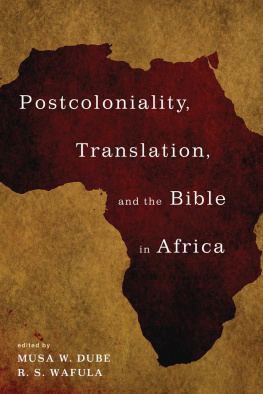
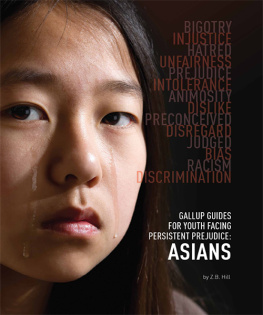


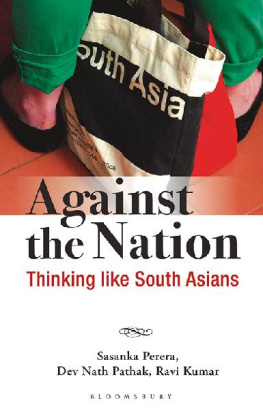
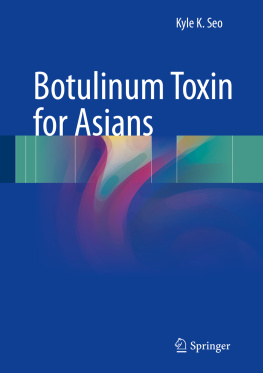


 The paper used in this book meets the requirements of the American
The paper used in this book meets the requirements of the American